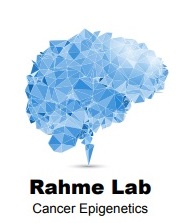Philosophy and Goals
 Take me to document
Take me to document
The objective of the training program is to provide an educational opportunity in which the trainee is afforded a comprehensive background in Pediatric Infectious Disease (ID), including training in both research and diagnostic skills. This includes a thorough hands-on experience in management of infectious disease as it relates to inpatients and outpatients, and development of excellence in basic and clinical research skills for future growth.

Sub title
The objective of the training program is to provide an educational opportunity in which the trainee is afforded a comprehensive background in Pediatric Infectious Disease (ID), including training in both research and diagnostic skills. This includes a thorough hands-on experience in management of infectious disease as it relates to inpatients and outpatients, and development of excellence in basic and clinical research skills for future growth.
 |
The objective of the training program is to provide an educational opportunity in which the trainee is afforded a comprehensive background in Pediatric Infectious Disease (ID), including training in both research and diagnostic skills. This includes a thorough hands-on experience in management of infectious disease as it relates to inpatients and outpatients, and development of excellence in basic and clinical research skills for future growth. |

jfhkhkgfhkghkjdfg
yhjyjhyjrtjkhyjktrjyhktrjk
fgjfghjfhkjghkjgkjhkjgkjhgf
gfjkghfkjhfk
red text
Patient Care
Each fellow is responsible for attending up to two pediatric infectious disease clinics per week. In addition, they must attend weekly Pediatric ID team meetings when on service. While on service, they are to be available 24 hours a day for emergency evaluations of patients requiring infectious disease consultations in the inpatient and outpatient service. In addition, the fellow will help provide primary care for HIV infected children and adolescents living in Suffolk County. The fellow must also attend one pediatric case conference per week.
Teaching and Preceptors
Each fellow is assigned a preceptor who is one of the division’s Board Certified Pediatric ID faculty. This preceptor oversees the clinical and research progress of the fellow. In addition, the fellow may choose a research advisor and investigator in an area relevant to their individualized research project from the broad life sciences base of the Stony Brook University campus and its graduate schools. The subspecialty residents attend, in conjunction with ID residents in the Department of Medicine, a structured curriculum of weekly lectures by Pediatric and Adult ID faculty. The topics cycle approximately every two years. Pediatric ID fellows are required to provide at least three lectures per year to the residents in the Department of Pediatrics. In addition, they are required to do either one Grand Rounds or research conference per year. All fellows should attend 3 out of 4 of the joint Pediatric and Adult ID Journal Clubs per month. On a daily basis, the fellows are also responsible for educating the house staff and medical students on all inpatient admissions requiring ID input.
Seminar and Teaching Conferences
Participation in various teaching seminars is expected where appropriate. These include: Pediatric Grand Rounds (weekly), Pediatric Case Conferences (two times per week), Joint Pediatric Adult Conference (weekly), Fellow's Education (weekly), Pediatric Journal Club (quarterly), LI Infectious Disease Society (bi-monthly), Medicine Grand Rounds (weekly), and Pediatric Noon Conference (weekly).